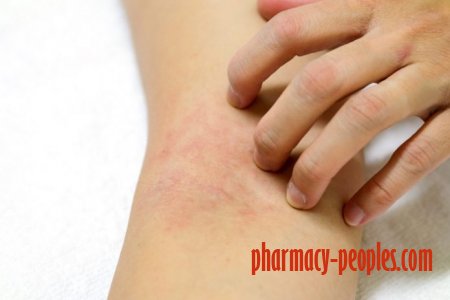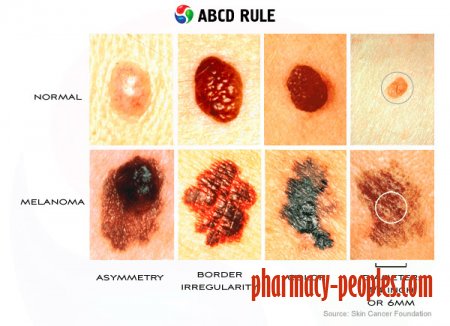Skin cancer – different types, their symptoms and causes
This type of cancer most often is developing on skin which is exposed to sun. Skin cancer is the abnormal growth of skin cells. But the skin cancer can also happen on the areas of the skin which are not ordinary exposed to sunlight.
Melanoma, squamous cell carcinoma and basal cell carcinoma are 3 major types of skin cancers. Also there are other less common types of skin cancer, such as sebaceous gland carcinoma, Merkel cell carcinoma and Kaposi sarcoma. You should limit or avoid the exposure to UV (ultraviolet) radiation because in this way you will reduce the risk of skin cancer. Also when you are checking your skin for suspicious changes, then it can help you to detect the skin cancer at its early stages. When your skin cancer has been detected in its early stages, then this is giving you greatest chances for successful skin cancer treatment.
Skin cancer symptoms
The skin cancer develops primarily on the areas which are exposed to sun, such as arms and hands, chest, neck, ears, lips, face, scalp and on the legs in women. But also the skin cancer can develop on the areas that rarely see the light of the day, such as your genital area, beneath your fingernails or toenails and your palms. The skin cancer is affecting people of all skin tones in which are also included people have darker complexion. When the melanoma is happening in people who have dark skin tones, then it is more likely to happen in those areas which are not normally exposed to the sun, such as the soles of the feet and the palms of the hands.
Basal cell carcinoma signs and symptoms: This type of skin cancer is usually happening in those areas which are exposed to sun, such as the face or neck. The basal cell carcinoma may appear as:
- A flat, flesh – colored or brown scar – like lesions
- A pearly or waxy bump
Squamous cell carcinoma signs and symptoms: In the most cases, the squamous cell carcinoma is happening on sun – exposed areas of the body, such as hands, ears and face. Those people who have darker skin are having increased chances of developing this type of skin cancer on areas which are not often exposed to the sun. This type of cancer may appear as:
- A flat lesions with a scaly, crusted surface
- A firm, red nodule
Signs and symptoms of melanoma: This type of skin cancer can develop anywhere on the body, in otherwise normal skin or in an existing mole which becomes cancerous. This type of cancer in both men and women is happening on the skin which has not been exposed to sun. In women, the melanoma is mostly developing on the lower legs. This cancer can affect people on any skin tones. Those people who have darker skin tones, melanoma tends to happen on the soles or palms or under the toenails or fingernails. Here are some signs of melanoma:
- You can have dark lesions on your soles, palms, toes or fingertips or on mucous membranes lining your mouth, nose, vagina or anus
- A small lesion with an irregular border and portions that appear red, white, blue or blue – black
- A mole that changes in color, size or feel or that bleeds
- A large brownish spot with darker speckles
Skin cancer Causes
When errors (mutations) happen in the DNA of skin cells, then skin cancer happens. These mutations cause cells to grow out of the control and they form a mass of cancer cells. This cancer begins in the skin’s top layer which is called epidermis. Epidermis is a thin layer which is providing a protective cover of the skin cells which your body continually sheds. This layer has 3 main types of cells:
- Squamous cells
- Basal cells
- Melanocytes
Where your skin cancer begins it is determining its type and the treatment options.
UV light and other potential cause: In the most cases, the damage that is caused to DNA in skin cells is resulting from UV radiation found in the sunlight and in the lights that are used in tanning beds. But the skin cancer which is found on the skin that is not ordinary exposed to sunlight, is not explaining the skin cancer. This means that other factors can increase your risk of skin cancer, such as when you have conditions which weaken your immune system and when you are being exposed to toxic substances.
- Health / Disease
- 7-12-2018, 21:51
- 2 178
- Pharmatic

